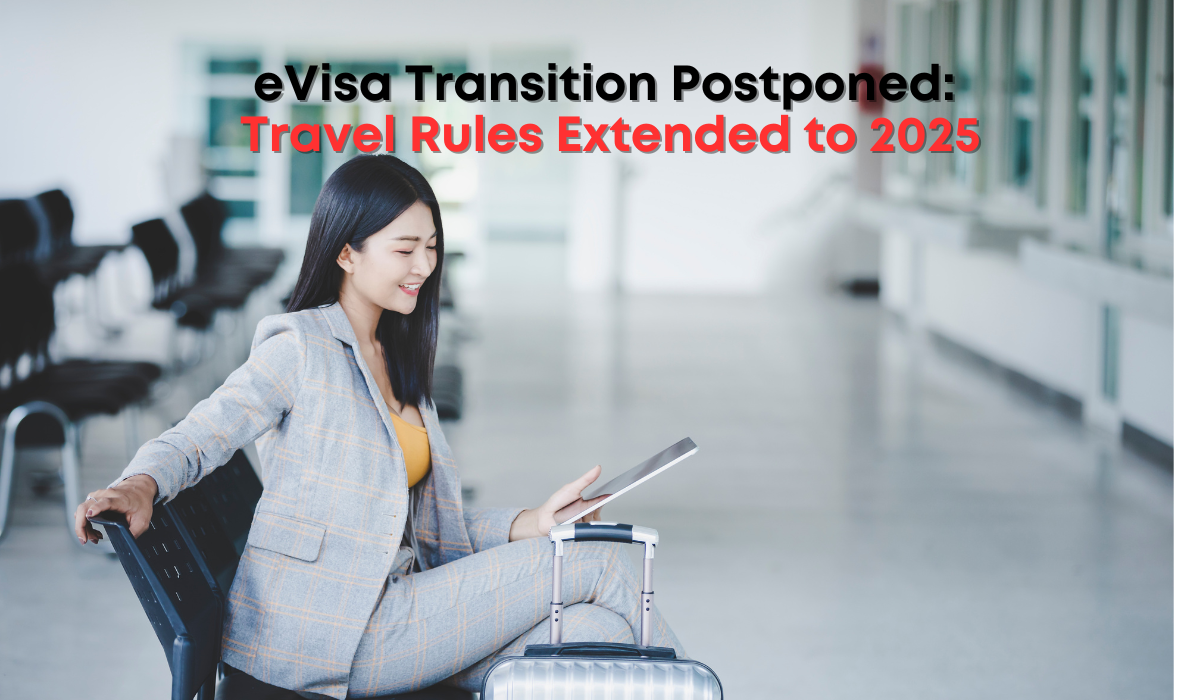Extended Validity for Expired Documents
Under the updated guidance, expired BRPs and EUSS BRCs will remain valid for international travel until at least 31 March 2025, provided the holder has valid immigration status. Travellers holding these documents are encouraged to carry them during the extended transition period while ensuring their status is confirmed through the UKVI portal or a share code.
Airlines have been instructed to accept these expired documents during the transition phase to mitigate potential disruptions. However, individuals without these legacy documents will have their immigration status verified through alternative measures.
Travel Requirements During the Transition
The government has outlined key protocols for visa holders during this period to ensure smoother travel:
- Linking eVisas and Passports: Travellers must ensure their eVisa is connected to their current passport or travel document before departure. Failure to do so could result in delays or issues at the border.
- Creating Share Codes: A share code, valid for 90 days, should be generated through the UKVI online portal and carried as proof of immigration status during travel.
- Using Expired Documents: Expired BRPs or EUSS BRCs may still be used for travel, provided they expired on or after 31 December 2024 and the individual holds valid immigration status.
- Verifying Status: Travellers who no longer have physical documents must ensure their status is accurately reflected and accessible through digital means.
The transition extension aims to strike a balance between maintaining border security and addressing practical challenges faced by visa holders.
Adoption Challenges for the eVisa System
The eVisa system was originally slated to replace physical immigration documents entirely by January 2025. However, concerns over implementation have led to the postponement. Technical issues, such as the complexity of linking eVisas to new passports and the accessibility of the digital platform, have complicated the rollout.
Over 3.1 million individuals have successfully transitioned to eVisas, yet many—particularly digitally excluded or vulnerable individuals—have encountered difficulties. To address this, the government has introduced several measures:
- Streamlined Processes: Automated UKVI account creation for specific groups, such as refugees, aims to ease the transition process.
- Enhanced Support: Specialist services, including community-based assistance and free digital help, are being provided for those struggling with the transition.
- Improved Communication: Airlines now have access to a 24-hour helpline to verify travel documents, helping reduce confusion at check-in counters.
Impact on Employers and Right to Work Checks
Employers are also affected by the delayed transition, particularly in how they conduct Right to Work checks. While legacy paper-based documents remain valid during the transition, employers are encouraged to familiarise themselves with the online verification system, which allows real-time confirmation of an individual’s immigration status.
The government advises employers to:
- Train HR staff in using the online Right to Work service.
- Assist employees who face challenges transitioning to eVisas by directing them to Home Office support services.
- Proactively communicate the importance of updating their immigration status and documentation.
Balancing Convenience and Security
While the transition to eVisas is a step toward modernising the UK’s immigration system, it underscores the challenges of moving from physical to digital verification methods. The delay allows stakeholders—including travellers, employers, and carriers—to adjust to the new system without compromising border security or causing undue disruptions.
However, as the new deadline approaches, it remains critical for the government to address existing gaps in communication, infrastructure, and accessibility. By ensuring that affected individuals have the tools and support needed to transition smoothly, the UK can pave the way for a more efficient and inclusive digital immigration framework.
Key Takeaways for Travellers and Employers
For visa holders:
- Verify that your eVisa is linked to your current passport or travel document.
- Generate and carry a share code for ease of verification during travel.
- Use your expired BRP or EUSS BRC where necessary, but plan to transition to digital proof of status.
For employers:
- Transition your Right to Work processes to digital systems ahead of the full rollout.
- Support employees who encounter difficulties with the eVisa system, particularly those who may be digitally excluded.
Looking Ahead
As the UK government continues to refine its eVisa strategy, the success of this initiative will hinge on clear communication, robust infrastructure, and ongoing support for all stakeholders. The delayed timeline provides an opportunity to address the challenges and ensure a seamless digital transformation that benefits both migrants and the wider public.
Get in touch: For a comprehensive understanding of your options or queries on UK immigration matters, contact GigaLegal Solicitors at 02074067654 or click here to book a no-obligation consultation with an immigration expert.


